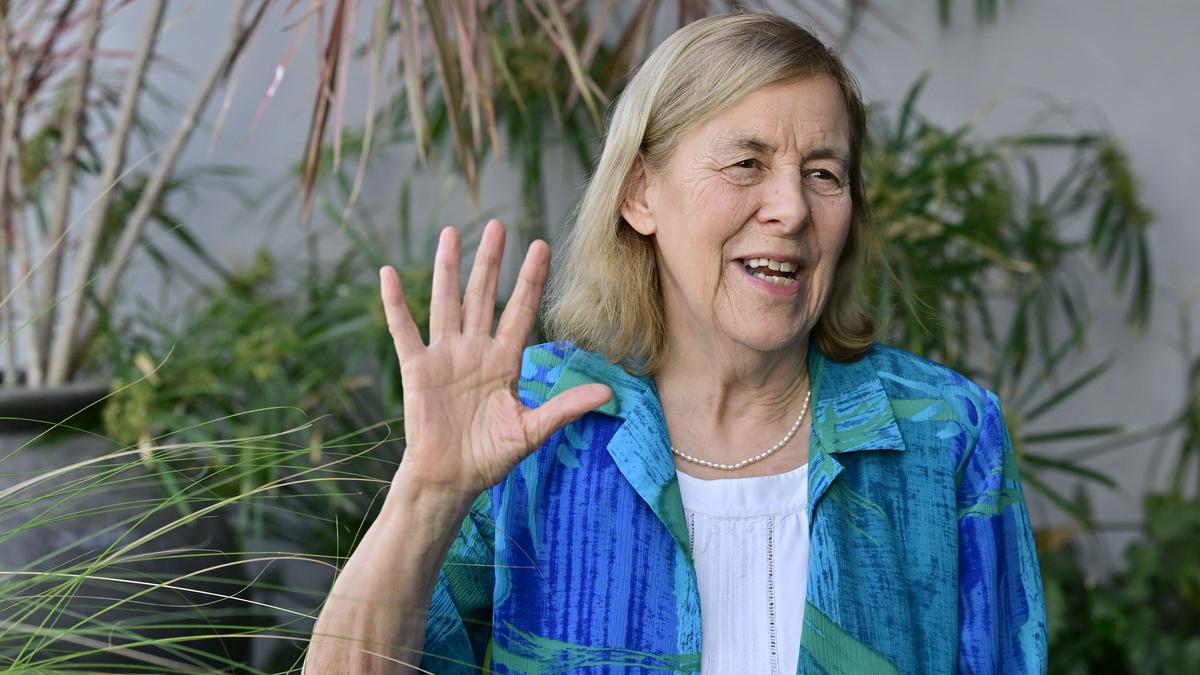
Advancements in protein structure research will lead to a new way of doing medicine: computational biologist
The Hindu
Renowned computational biologist Janet Thornton discusses the potential of protein structure understanding in developing new medicines.
We have come a long way in understanding the structure of proteins, but in translating that into new medicines we are just starting, said renowned computational biologist Janet Thornton in an interaction with The Hindu.
“We saw with the COVID-19 virus how quickly the structures of the spike protein, which was the basis for part of the vaccine, could be characterised. I think we’ve come a long way in that understanding. Translating that into new medicines probably is only just starting,” she said.
“Today, when there are general patients, very often they are treated for the symptoms and not for the cause. But I think there’ll be a new way of doing medicine. Health services across the world are struggling now with demand. I think that will change because once we have enough data, we can improve the services given,” she added.
A pioneer in structural bioinformatics and Director Emeritus of the European Bioinformatics Institute, Prof. Thornton was in Bengaluru to deliver a lecture organised by Shibhulal Family Philanthropic Initiatives (SFPI), in collaboration with TIFR.
“A doctor usually operates on his own experience which is somewhat limited. If we could gather these data together then I think there is potential for more accurate prognosis and diagnosis,” she pointed out.
While more data is critical to improve research efficiency, Prof. Thornton, who is on the board of Health Data Research U.K. (a U.K. government-funded organisation to coordinate health data and make it available for research), acknowledged that there are challenges to making data open and accessible.
“Health data is quite different. It’s very personal and there are ethical concerns. In my opinion, it’s going to take many more years to really coordinate health data and make it accessible,” she said. On the other side are conflicts in terms of commercial interests, she added.

“Earth Day celebrations have already started in Bengaluru, with campaigns at various colleges such as St. Josephs, and Christ University where life-size elephants made from the invasive species, Lantana Camera, have been travelling to spread the message of conservation and coexistence, along with expert talks from WWF India and Ravi Chellam of Metastring Foundation,” said the release.

Vijayawada and Vizag metro rails: Centre approves appointment of SYSTRA MVA Consulting for preparing mobility plans. The New Delhi-based consultant has emerged as the successful bidder for preparing CMPs for both the projects. The Government of Andhra Pradesh has sanctioned DPRs for construction of the Visakhapatnam Metro Rail for a length of 46.23 km in three corridors at an estimated cost of ₹11,498 crore and the Vijayawada Metro Rail for a length of 38.40 km in two corridors at a cost of ₹11,009 crore.











